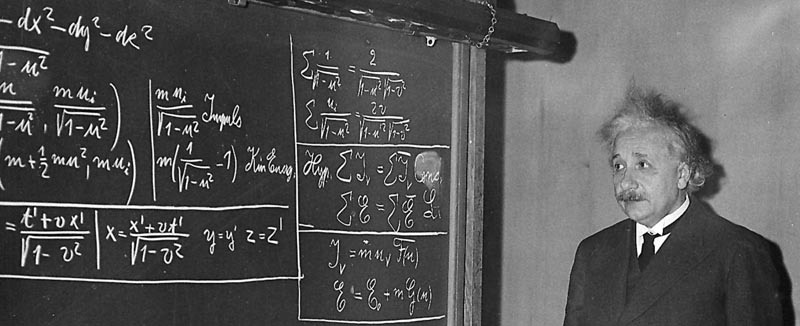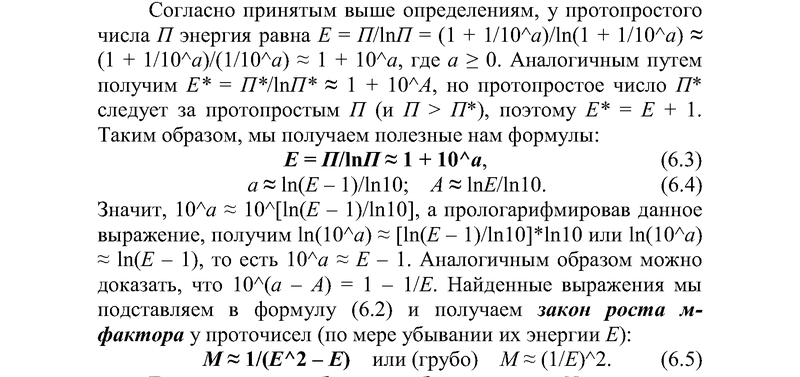(Twice two four)! = (2 * 2 = 4)

Occasionally I come across the opinion that it is incorrect to discuss physical problems without using mathematical formulas. In the most significant cases, the researcher is convinced that the numbers are the universal master key to the secrets of the universe.
Such people are often aggressive. Adherents of the numerical world, they believe all representatives of non-mathematical, especially the humanitarian professions useless talkers, as they explicitly say.
Not sure if this is true.
Mathematical language is a scientific method of knowing the world around us, and natural languages are a means of communication at the everyday level. Indeed? Sorry, but natural languages seem to me to be an older and more flexible means of knowledge than mathematical formulas.
Here are two claims to the meaningfulness of complex - for me simply abstruse - statements belonging to different authors (conditional example):
1.

2.
“But the existing being, which contains both nothing and being, is itself a scale for one-sided quality as only immediate or real certainty. Quality must also be laid in the definition of nothing, so that direct or existent certainty is considered as some distinguished, reflected certainty, and thus, nothing like the certainty of some certainty is also some kind of reflected, some denial. The quality, taken from the other side, that it, being distinguished, is recognized as being, is reality; he, burdened with some negation, is negation in general; it is also a certain quality, but one that is recognized as a disadvantage and will be defined hereinafter as the border, the limit.
Is it possible to state out of context with the context that the first statement has a physical meaning, and the second one does not (either: can have - cannot have), only on the basis that the second statement is formulated in “incorrect” natural language ?!
From my point of view, both entries are sets of characters that can express something true, but can not express it. By itself, the author used the method of expression - whether verbal, formulaic - does not serve as a criterion for the depth or truth of thought.
Moreover, anything can be expressed in natural languages, whereas in the language of formulas it is a rather limited circle of very specific concepts in a very specific way.
Take mathematical equality: 2 * 2 = 4. It is easy to put it in natural language: "twice two equals four." Now try to express a verbal construction using a mathematical formula: “Mom washed the frame”.
If you think that “mommy soap frame” has nothing to do with physics, because this is not about whether it is related or not, but about whether it can or cannot be expressed. But the attitude to physics is a moot point. It seems to me that “mom washed the frame” describes the physical reality better than “2 * 2 = 4”. In this sense, both expressions - more precisely, both ways of expression, since we are talking about ways - are equally suitable for the designation, and therefore the study of the surrounding world. After all, the world around us is one, isn't it?
Yes, in some situations, in particular when operating with numbers, it is more convenient to use formulas. It is easier to write "2 * 2 = 4" instead of "twice two equals four." So what? And in other situations - far more common, by the way, is more convenient to use natural language.
Scientific works on physics and mathematics do not do without natural languages at all, diluting them with formulas in one or another proportion. A mistake in a meaningful verbal construct draws the tie of mathematical formulas into dust. "Let n be this and that." If the so-called “so-and-so” - formulated in natural language, as said, is incorrect in relation to physical reality, further tricks lose their meaning.
As for the severity of the evidence allegedly inherent in the mathematical apparatus, then there are syllogisms - thin tools of logical knowledge available in natural languages.
There is no dispute, unsubstantiated statements and erroneous conclusions are characteristic of natural languages, syllogisms are not a hindrance to that. So this is due to the natural flexibility of natural languages, and not their inferiority! As I tried to show in two paragraphs above, mathematical formulas are no less vulnerable to errors and juggling: there is no reason to take them as the only scientific method for studying reality. There is no need to reduce the magnificence of the physical world exclusively to numerical relations.
If I did not convince you, I do not insist. As you please. Let (twice two four)! = (2 * 2 = 4).
Only registered users can participate in the survey. Sign in , please.
